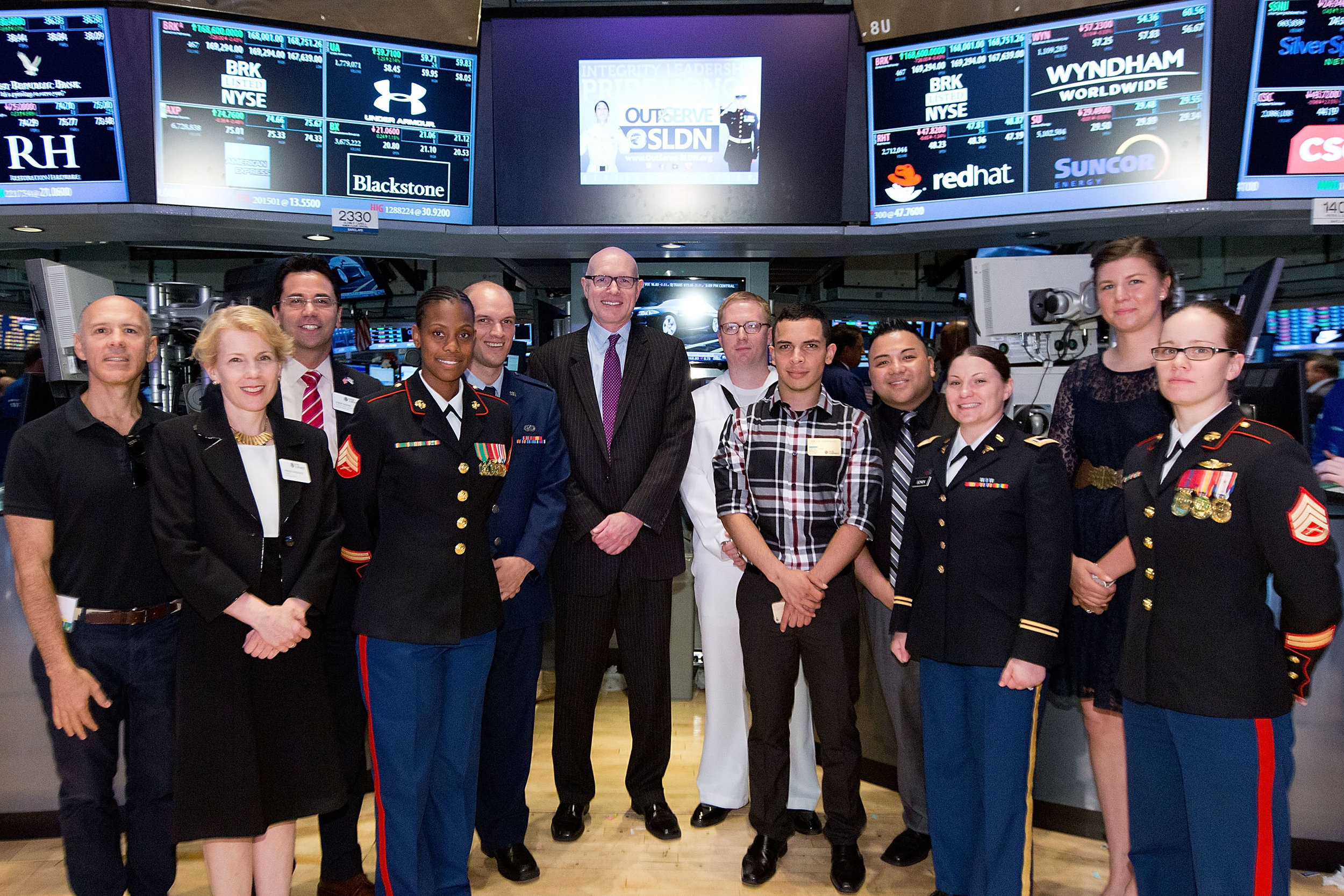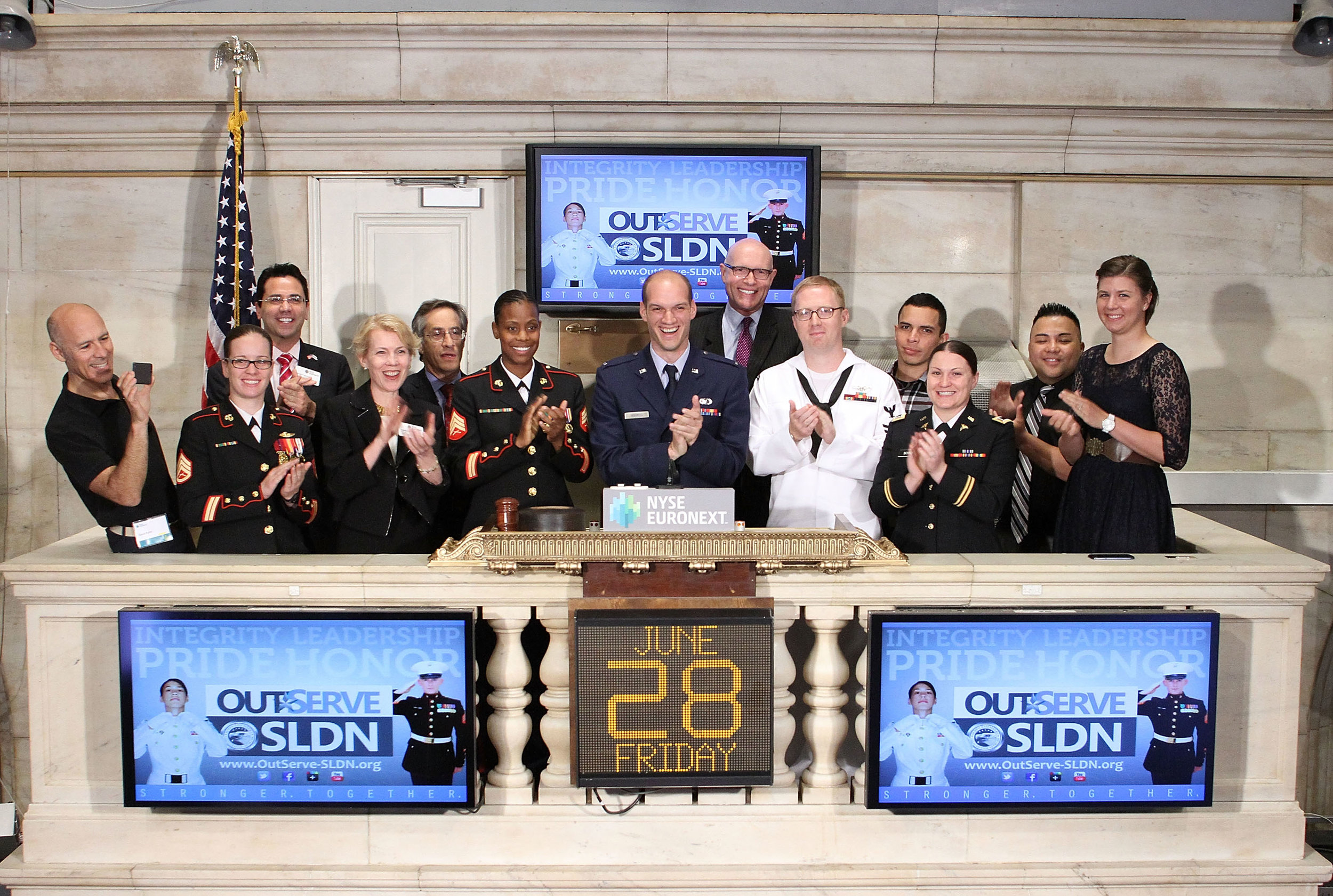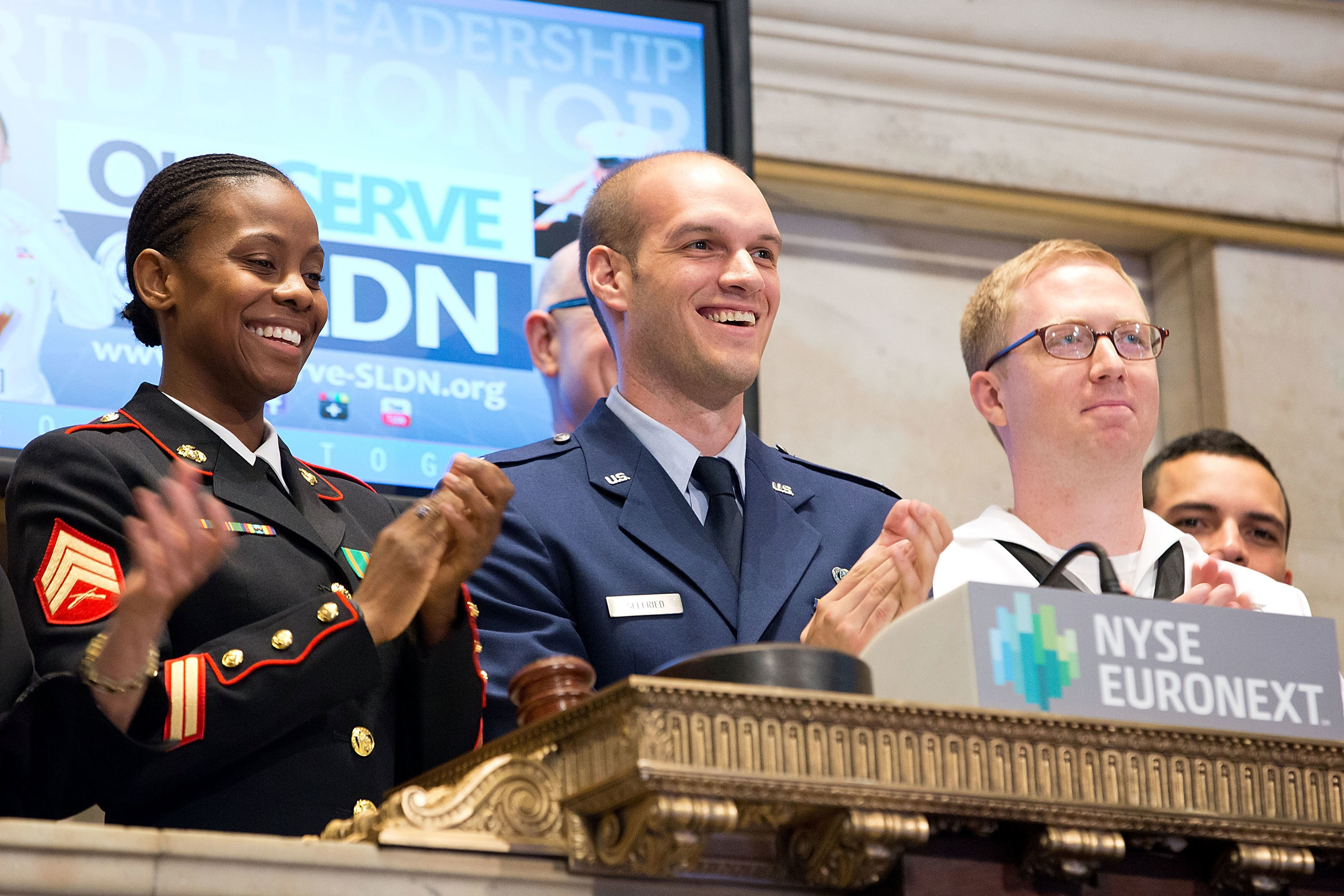This piece originally appeared in the Daily Beast:
One month ago, under a pseudonym, the author wrote about his experiences serving in the United States Air Force as a gay military member under the "don't ask, don't tell" policy. Today, on the day the policy officially ends, he reveals his identity.
My name is Josh Seefried. I am a gay first lieutenant in the United States Air Force, and for the past two years I have been known as “JD Smith.”
Under that pseudonym, I cofounded the organization of gay, lesbian, bisexual, and transgender (LGBT) troops known as OutServe. Using hidden Facebook groups and emails I helped connect more than 4,000 LGBT troops currently serving around the globe, including in Afghanistan and Iraq. At the risk of being fired, using my assumed name I interfaced with media, the Pentagon, and the White House in regard to the policy known as “don’t ask, don’t tell."
For nearly two decades, "don't ask, don't tell" forced gay and lesbian troops to lie about who they were in order to serve in the military. Gay troops like me had to worry every single day about losing the careers we loved. That misbegotten era of our military's history is now over. President Obama signed the legislation to repeal DADT last December, and two months ago he and the Pentagon certified that the military was ready for the repeal to take effect. Today, DADT officially died.
Now I and thousands of other gay and lesbian troops can walk into our units free from fear of losing our jobs, our integrity restored. For most of us, the repeal of DADT has been Y2K all over: something hyped, but nothing more. Most soldiers probably knew the date of Sept. 20 more for the season premiere of Glee than for the date DADT finally died. The hype built around the repeal of DADT has created a situation in which there will be many gay troops who are scared to come out of the closet, a fear built upon decades of slandering gay soldiers. We were painted as soldiers who would put fellow soldiers and this nation at risk. Instead of honoring the courageous actions of troops who were gay and lesbian, we were being fired, investigated, and told we did not deserve to be part of this team. Any contribution offered by a gay soldier was overshadowed by his or her sexuality.
Opponents of repeal have long insisted that allowing gays to serve openly would be a disaster to our military, but those days are now over, and leadership from the top has firmly proclaimed that every soldier is to be treated with respect. Now that this policy has ended, leadership is also directly needed from gay troops. Over the past two years of building OutServe I have received thousands of emails from gay and lesbian troops and their families and friends. I will never forget one of the very first messages I received. It was from the friend of a gay soldier who had killed himself just a few months prior. He told me, “JD, thank you for all you are doing to connect gay servicemembers. Maybe if OutServe had existed a few months ago, my friend may not have killed himself.” This message emphasizes the challenges that lie ahead for the military. The challenge now becomes fostering a culture of respect and dignity among the ranks.
This is why I chose to come out on Day 1 after the policy changed. I chose to come out publicly for the thousands of gay military members who have been told they are a risk if they serve in the military openly and honestly. People may say what I'm doing is attention-seeking or not befitting a military officer, but that very mentality shows the prejudice we still harbor when it comes to sexual orientation. Sexual orientation within the military is no longer a political issue; it should be regarded no differently from race, religion, or even something as simple as hair color. The more we show that we are human like everyone else, the more this stigma goes away. This is why for the past few months I have collected the stories of currently serving gay military members. Using their real identities, they relate their experiences under DADT and their hopes for the future. In a few weeks I will be releasing this project, which will share the stories of gay military members using their real names and stories for the first time. I remember reading a book during my time at the Air Force Academy about a gay Air Force officer that inspired me to serve under DADT. I hope this book will do the same for others.
If gay soldiers choose not to come out, we remain invisible, we remain a myth—invisible soldiers with no family, friends, or fellow soldiers who care for them, no chance of holding a high position in military leadership. That invisible picture destroys the hopes of the thousands of gay and lesbian youth who desire to serve their country someday, and erodes the hopes of the currently serving gay service member who believes he would not be respected if he came out. That is the new challenge that lies ahead.
Gay soldiers should find the courage to come out. Even if some members in the unit react negatively, it starts a discussion. Once you start a dialogue, you break down the walls of prejudice. It is up to us currently serving gay soldiers to show leadership, come out, and break down those walls. If we are unwilling to be honest about ourselves to our units, future generations will never experience a future truly free from prejudice.
There also will be future challenges for the military. For the first time since the integration of African-American troops into the U.S. military, there will be inequality among the ranks. Under DADT, it was assumed everyone in the military was straight, and inequality was thus invisible. However, now military members who are gay or lesbian will be treated differently from their heterosexual counterparts. Gay relationships and marriages will not be recognized, and straight service members will witness their gay friends being treated differently. Commanders will be placed in a position where they can't allow gay service members to receive assignments that allow them to remain with the person they love, and people in straight marriages will be paid higher military salaries than those in gay marriages. This will be challenging, and we must react professionally and trust that our leadership will take care of us.
I feel privileged and honored to serve during this time in our nation’s history. This change in policy has not only made our military stronger, it's made America stronger. I’m proud to serve in the United States Air Force and proud of the fact that gay service members can now do their job with their integrity intact.



